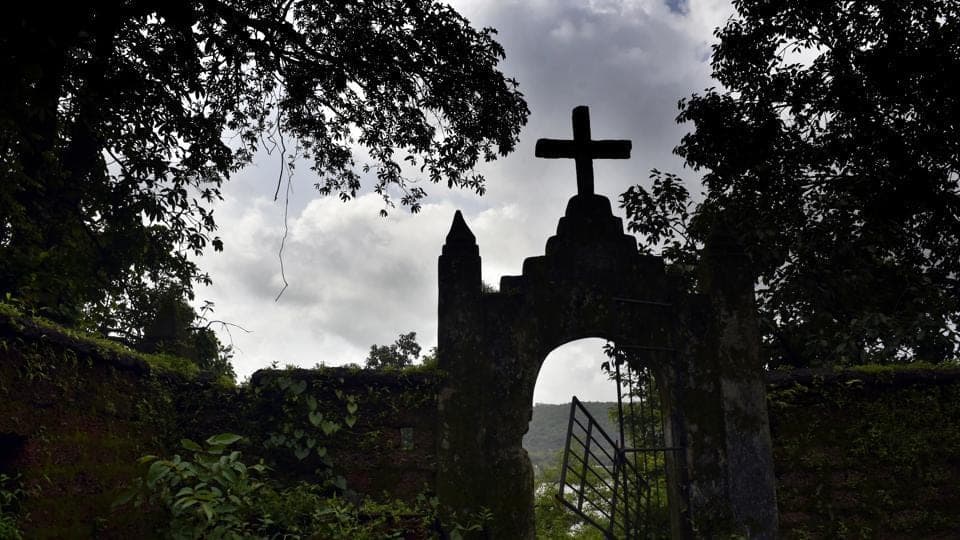MUMBAI, India – A spat between the ruling party and the Catholic Church in the Indian state of Goa is getting ugly, with the two sides trading insults this week – including allegations of Nazi-like behavior.
The controversy began when Renovacao, a diocesan newsletter, published an article written by lawyer FE Noronha telling voters to fight “communal forces” so that the march of “nationwide fascism” would be stopped.
Goa – a former Portuguese colony which was annexed by India in 1961 – is considered a center of Catholicism in the country, and Christians make up about a quarter of the population in the state, compared to less than 3 percent for India as a whole.
“In 2012, everyone thought in terms of having a corruption-free Goa; this thinking continued till 2014, but from then and increasingly everyday what we are witnessing in India is nothing but a constitutional holocaust. Corruption is very bad, communalism is worse, but Nazism is worse than both,” the article said.
That year, the Hindu-nationalist Bharatiya Janata Party (BJP) took power in Goa, replacing the secular Congress Party, which was hit with a series of corruption scandals. Two years later, in 2014, the party took over the national government.
The BJP has strong links to the Rashtriya Swayamsevak Sangh (RSS), a militant Hindu nationalist organization.
However, the party is more solicitous of religious minorities in Goa than nationally. Six BJP members of Goa’s legislative assembly are Catholic, including former deputy chief minister Francis D’Souza.
In addition to the article in the diocesan newspaper, the Church’s Council for Social Justice and Peace, released the report of a fact-finding team representing national Church organizations which investigated a series of acts of vandalism and desecration in church cemeteries in the state.
RELATED: Catholic Cemetery vandalized in Goa, India
The report faulted the government for not doing more to stop Hindu-nationalist hate speech in Goa.
Meanwhile, the article in Renovacao compared India in 2014 to Germany in 1933, and said, “Anybody who read William Shirer’s The Rise and Fall of the Third Reich or Allan Bullocks’ A Study of Tyranny or Hitler’s own Mein Kampf will find an extraordinary identity” between the two eras.
“Freedom, democracy and secularism are more important than corruption. Corruption was better. Let the corrupt rule if they allow us to talk, to eat and to be politically free,” the article continued.
The newspaper article and the report both came out in the lead-up to an August 23 by-election which was being contested by the Goa Chief Minister Manohar Parrikar.
“The country is being ruled by one or two men and the rest are mere henchmen and running dogs. Please don’t vote for a person who is a mere subaltern of such individuals. We should not vote for persons who show no sign of distinct backbone or character and evidently agree with the nationwide fascism,” the Renovacao article said.
RELATED: Church in India marks day of prayer for creation
The BJP’s spokesperson in Goa, Nilesh Cabral, called the article “unfair,” and put the blame on the local Catholic Church for having published it. He also accused the Church of trying to polarize voters before the vote by publishing the report on the desecrated cemeteries so close to the election.
“If they have any facts, they should have brought it to the notice of the police department instead of coming out with a statement during the election time, which was an attempt to polarize the votes. But, it worked out the other way,” he said.
Cabral then went further, saying Nazism had been “supported by the Church,” and claiming Germany was “90 percent Roman Catholic,” at the time (Germany was in fact only about 30 percent Catholic.)
Father Maverick Fernandes, the Director of Caritas Goa and former executive secretary of the CSJP, called the comments by the BJP spokesman “empty.”
“Allegations can be made. Our reports have been based on analysis, based on interviews of people at the grassroot level and it has been based on a very solid, professional way of functioning,” Maverick told journalists. “He has to come out with straightforward rebuttal of every point that has been made. Statements cannot be considered a rebuttal of a well-studied report.”
Parrikar, who won the poll, refused to comment on the situation.
Incidents of harassment against Christians have increased over the past few months across India, with various Christians being detained or arrested for “attempted conversion,” and places of worship being vandalized.
More recently, a spate of killings related to “cow vigilantism” have happened around the country. The slaughter of cows – which are sacred in Hinduism – is illegal in most parts of India, although beef is often eaten by some Dalits (low-caste Hindus previously called “untouchables”) and members of some religious minorities, such as Muslims and Christians.
On July 16, the Catholic bishops’ conference in India hosted a group of spiritual leaders and intellectuals to discuss fears the country’s secular nature might be at risk.
The leaders called upon the people to “seek strength from India’s deep spiritual reservoirs to end the increasing environment of hate, violence and disregard for the rule of law” which have been affecting religious minorities in the country.











